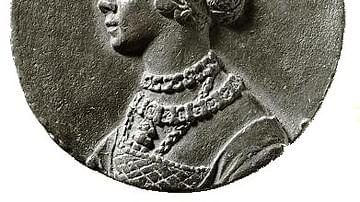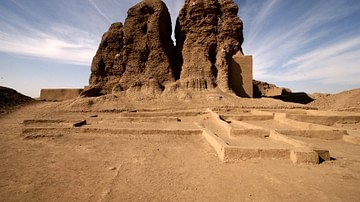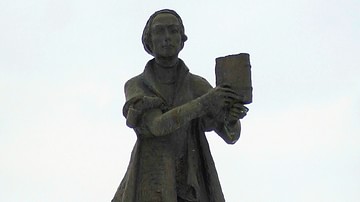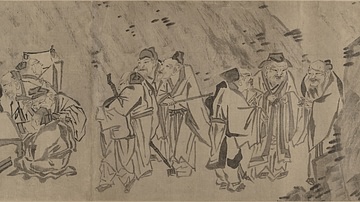Search
Search Results

Article
Argula von Grumbach's To the University of Ingolstadt
To the University of Ingolstadt (1523) is an open letter by the German reformer Argula von Grumbach (l. 1490 to c. 1564) protesting the dismissal, arrest, and imprisonment of the young scholar Arsacius Seehofer (l. c. 1504 to c. 1539) for...

Image
Title Page of To the University of Ingolstadt
Title page of To the University of Ingolstadt (1523), an open letter by the German reformer Argula von Grumbach (l. 1490 to c. 1564) protesting the dismissal, arrest, and imprisonment of the young scholar Arsacius Seehofer (l. c. 1504 to...

Image
Tokyo Imperial University
Tokyo Imperial University, 1925.

Image
The Aristotle University of Thessaloniki, Greece.
The western side of the campus of the Aristotle University of Thessaloniki.

Article
Interrelations of Kerma and Pharaonic Egypt
The vacillating nature of Ancient Egypt's associations with the Kingdom of Kerma may be described as one of expansion and contraction; a virtual tug-of-war between rival cultures. Structural changes in Egypt's administration led to alternating...

Definition
Argula von Grumbach
Argula von Grumbach (née von Stauff, l. 1490 to c. 1564) was a Bavarian theologian, writer, and reformer, who became a controversial figure after her 1523 letter To the University of Ingolstadt protesting the arrest of a young scholar for...

Definition
Greek Philosophy
Ancient Greek philosophy is a system of thought, first developed in the 6th century BCE, which was informed by a focus on the First Cause of observable phenomena. Prior to the development of this system by Thales of Miletus (l. c. 585 BCE...

Definition
Lao-Tzu
Lao-Tzu (l. c. 500 BCE, also known as Laozi or Lao-Tze) was a Chinese philosopher credited with founding the philosophical system of Taoism. He is best known as the author of the Laozi (later retitled the Tao-Te-Ching translated as “The Way...

Definition
Legalism
Legalism in ancient China was a philosophical belief that human beings are more inclined to do wrong than right because they are motivated entirely by self-interest and require strict laws to control their impulses. It was developed by the...

Definition
Teng Shih
Teng Shih (l. c. 500 BCE) was a Chinese Sophist and lawyer who lived and wrote in the province of Cheng (Pengcheng, modern-day Xuzhou, Jiangsu province) during the era of the Spring and Autumn Period (c. 772-476 BCE) which preceded the Warring...